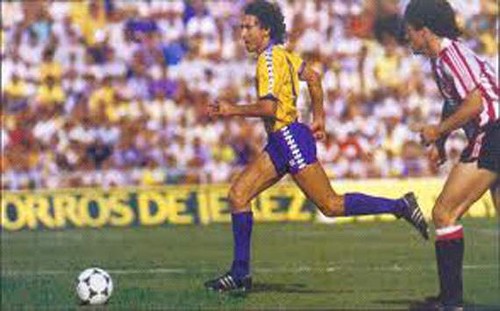
There are times that without wanting to or knowing it a person suddenly finds his place in the world. This is the story of the spell that Cadiz, a small city in southern Spain, produced in a unique player. This is the story of Jorge "Mágico" González, the footballer who could be everything but did not want to.
The one of Jorge "Magico" González is not only the history of an unrepeatable football player, but of a unrepeatable relation; the one forged by an unknown Salvadoran footballer and Cádiz. It's been more than 30 years since the beginning of that romance that still continues to fuel talks, debates, a story that every day takes a small step closer to legend.
In spite of not having belonged to the great clubs of the world or to one of those powerful selections that obtained important titles, it stood out among so many and many players that existed and exist within the world of football. And it is not a little.
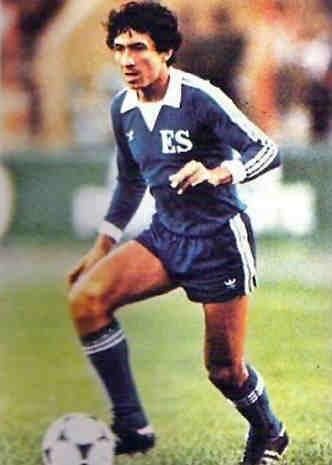
Known in El Salvador as "El Mago" Jorge became the "Magico" in the 1982 World Cup held in Spain. Despite receiving 15 goals and losing all games, the world would remember a surname of that Salvadoran team: Gonzalez. After his brilliant performance in the World Cup, half Europe asks about that unknown magician.
Although the Paris Saint-Germain came to offer a significant amount of money, "Magico" decided to decline this offer as he was not attracted to the idea of Paris as a city to live. This is where Cádiz enters the scene, a city that radiates joy just by looking at it. As a team, Cádiz never rhyme with titles. This was the destination chosen by "Magico".
People enjoyed it every Sunday at the Ramón de Carranza stadium. What happened in the games remains in the memory of an entire city. The "Magico" was pure spectacle, the ball was art on his feet. Everyone began to notice that the player had something else, that he did things that others could not do. His incredible dribbling, his acceleration and decelerating deceleration and his impossible passes immediately fall in love with a whole hobby. Where the "Magico" looked, there he put the ball.
The Salvadoran became the sensation in Spain and had the happiness of scoring against FC Barcelona one of the most beautiful goals ever seen in the history of Spanish football. He had a full repertoire of great plays, he was an artist with the ball.
But that romance between player and bloated only presented a problem and is that the "Magico" slept too much. Instead of sleeping 7 or 8 hours as a normal person, he slept 15 or 20 hours at any time of the day. This caused him to get up late to go to training or he just did not get up.
The problem was not that the "Magico" slept much, but that he did not usually do it at night. He led a disorderly life out of the field. He was a party lover to the point that "night" and "Magico Gonzalez" were practically synonymous. He was not fond of alcohol, in fact he used to drink milk, but he was a partier to die. The whole city knew what he was doing with the ball on his feet, but the whole city also knew what he was doing when he did not have it. He loved being in the nightclubs celebrating all night and this caused problems to arise with the club's board. There was even an occasion in which he stayed 18 days without showing up for training, which caused fines and lost several games by technical decision.
The Cádiz was tired of the indiscipline of the "Magico" so they looked for a way out and the Barcelona of Diego Armando Maradona was interested in him. They took him on a tour of the United States with the club to see how it felt to wear the shirt of a big team. In that tour the "Magico" showed clearly that he was a footballer for FC Barcelona. Maradona himself surrendered at the feet of the Salvadoran, making it clear that he was the best.
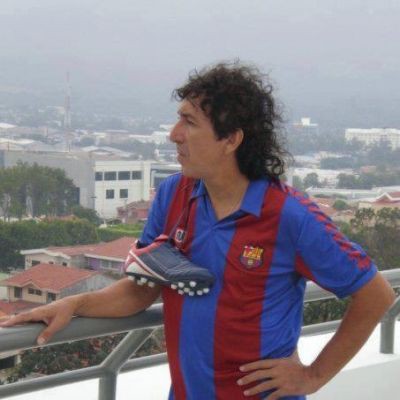
On the field Jorge made enough mischief to justify his contract with the culé club, but for those who did away from the pitch returned to Cádiz. Only when the Barcelona was preparing to travel to the United States for the tour, the "Magico" arrived late, missed the plane and had to leave a day later on another flight. Barcelona was scared by the "Magico" attitude and they ended up declining their signing. That lack of ambition was the one that stopped the career of a player who was called to be one of the greatest in history. Fun was ahead of ambition.
Cádiz's patience came to an end in January 1985 when he was transferred to Real Valladolid where he met a team that was anxious to enjoy the player and change the person. But in the 6 months he was in Valladolid, "Magico" only played 9 games and scored 2 goals. His behavior outside the field was far from that expected by a professional.
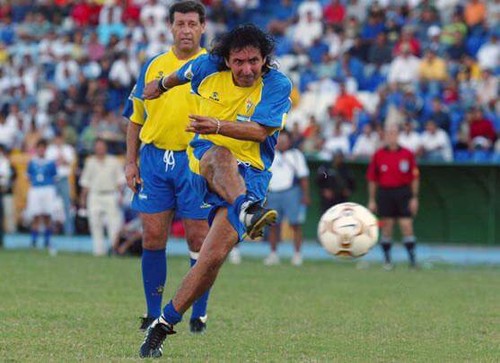
Although the President of Cádiz swore never again to sign Jorge González, the pressure of the fans managed to get the "Magico" to wear the yellow shirt again. In the club they thought that the Salvadoran had learned the lesson, but nothing could be further from reality. Jorge became a machine to accumulate fines for indiscipline. The truth is that money was not important to the "Magico".
It was in his second stage in Cádiz where the "Magico" left the best samples of his football. Nothing had changed in him, but at least his nights were forgotten with his football afternoons. The things that "Magico" did when he wanted to play were impressive, it was as if the Cadiz instead of playing with 11 players, played with 13. The performance of the Salvadoran again aroused interest, this time from an Italian club.
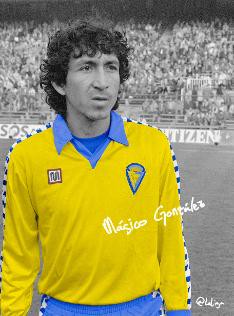
There was a concrete offer from Bergamo's Atalanta. There was a meeting in Cádiz to talk about his transfer and Jorge asked if there was fried fish in Italy. When encountering a non-response, the "Magico" decided he did not want to go there. At that time it was no longer possible to separate Cádiz from "Magico" González, because one was not understood without the other.
7 years after his arrival, the "Magico" came out of Cádiz. They say he returned to El Salvador, his life-long team. They say he became a taxi driver, some who disappeared and others who in the afternoons can be seen playing football.
Today the Cadiz militates in the 2nd division of Spain. While waiting for better days, a stadium and a city continue to tell the story of Jorge "Mágico" González in every bar, corner and carnival. When you see him playing, he asks himself: Why was not it bigger? Why did not he choose another path? Why did not he try his luck at one of the big clubs that would surely make it to the top of football? Remember that he had all the conditions to fight as an equal with whoever was and reign the world football. I think the most sincere answer is that simply because he did not want to.
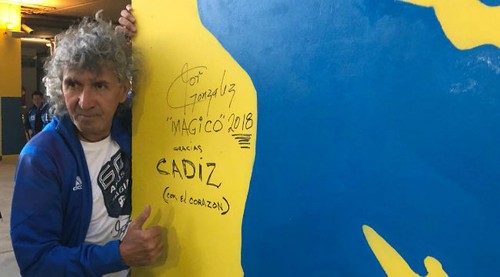
Comments